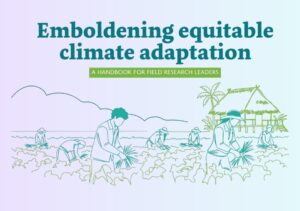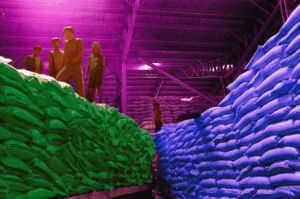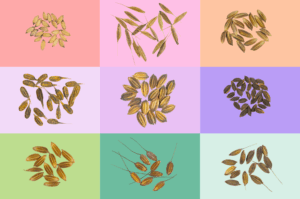Millions of people from China and the Philippines has benefited from agricultural cooperation between the two countries.
The agricultural cooperation, signed in 2016, has led to growing agricultural trade and investment in recent years. Under the agreement, China supported the Philippines through irrigation and agricultural technology projects in 226,500 hectares of commercial hybrid rice, benefiting more than 134,000 farmers.
China is now the third-largest export destination of Philippine agricultural products and the second-largest import source of farm products of the Philippines.
Read the story at The Star
More on agricultural collaborations with China:
Hybrid rice
Hybrid rice is a type of rice that has been bred from two very different parents. It can signficantly outyield other rice varieties. IRRI is working with its partners to develop new and improved hybrid rice varieties.
Because hybrid rice can outyield other varieties of rice, it is a key technology that meets the increasing global demand for rice. In the 1970s, China’s hybrid rice breeding program averted an impending famine. Today, hybrid rice closes yield gaps evident in many areas. It also raises yield potential. Bountiful harvests mean that farmers earn higher incomes and rice becomes available and affordable to more consumers.
Developing mechanically dense transplanting of single seedlings for hybrid rice production in China
The development of hybrid cultivars has substantially increased the yield potential of rice. It is estimated that planting hybrid rice can feed 70 million more people in China annually. However, the planting area of hybrid rice in the country has declined since 1996 at a rate of about 0.18 million hectares per year, presenting a challenge for national food security.
It is crucial to maintain or even increase the productivity of intensive cropping systems in China due to limited arable land per capita. In 2015, the arable land per capita in China was 0.08 ha, which was only 43% of the world average.
IRRI, the Chinese Academy for Agricultural Sciences, and BMGF team up to develop rice varieties for a Greener Revolution
The IRRI, the Chinese Academy of Agricultural Sciences and the Bill & Melinda Gates Foundation (BMGF), collaborate through funding and research efforts to develop Green Super Rice (GSR), a new set of rice varieties that perform well under the toughest conditions.
GSR is a mix of more than 250 different potential rice varieties that can adapt to difficult growing conditions such as drought and low inputs. The lines also use less fertilizer and no pesticides, which reduces the need for herbicides. At present, more than 130 advanced breeding lines with these traits are undergoing national varietal testing and will soon be released in different countries as new varieties.










